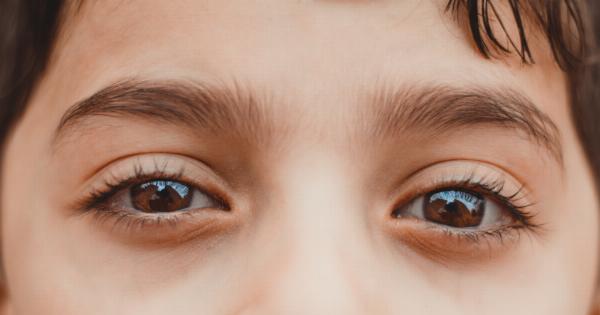Dry eyes can be a common discomfort for many individuals, leading to itching, redness, and a gritty sensation in the eyes. While there are over-the-counter eye drops available, some may prefer to explore natural remedies to alleviate dry eyes.
In this article, we will discuss various methods and lifestyle changes that can help treat dry eyes naturally.
1. Increase Humidity in Your Environment
One of the main causes of dry eyes is low humidity levels in the surrounding environment. Dry air can increase evaporation of tears and exacerbate the symptoms of dry eyes.
To combat this, use a humidifier in your home or office to add moisture to the air. This can help prevent the eyes from drying out and provide relief from dry eye symptoms.
2. Blink Frequently
We often unconsciously reduce blinking while working on digital devices or reading, which can contribute to dry eyes. Blinking helps distribute tears across the surface of the eyes, keeping them lubricated.
Make a conscious effort to blink frequently, especially when engaging in activities that require focusing for prolonged periods. This simple step can significantly reduce dry eye symptoms.
3. Follow the 20-20-20 Rule
The 20-20-20 rule is an excellent technique to prevent dry eyes when using digital devices. Every 20 minutes, take a 20-second break to look at something 20 feet away. This helps relax the eyes and reduces strain, minimizing dryness and discomfort.
4. Maintain Good Eyelid Hygiene
Healthy eyelids are vital for maintaining proper tear production and preventing dry eyes. Regularly clean your eyelids with warm water and mild baby shampoo or a gentle eyelid cleanser.
This helps remove debris and bacteria that can clog the oil glands responsible for lubricating the eyes.
5. Use Warm Compresses
Applying a warm compress to your eyes can help unclog blocked oil glands and stimulate tear production. Soak a clean cloth or cotton pads in warm water, wring out the excess moisture, and place them over your closed eyes for around 10 minutes.
This can provide soothing relief to dry eyes and improve tear flow.
6. Stay Hydrated
Inadequate hydration can contribute to dry eye symptoms. Ensure you drink plenty of water throughout the day to stay well-hydrated. This helps keep your body and eyes moisturized, reducing the likelihood of experiencing dry eyes.
7. Consume Omega-3 Fatty Acids
Omega-3 fatty acids have anti-inflammatory properties that can benefit dry eyes. Include omega-3-rich foods in your diet, such as fatty fish (salmon, tuna, sardines), flaxseed, chia seeds, and walnuts.
Alternatively, you can take omega-3 supplements after consulting with your healthcare provider.
8. Avoid Smoky or Windy Environments
Smoke and wind can further irritate dry eyes, making the symptoms worse. If possible, avoid direct exposure to smoky or windy environments.
Wear sunglasses or protective eyewear when outdoors to shield your eyes from harsh winds and environmental irritants.
9. Take Regular Breaks
Whether it’s working on a computer, reading, or doing close-up tasks, take regular breaks to rest your eyes. Prolonged periods of intense focus can strain your eyes and worsen dryness.
Use these breaks to relax your eyes, blink, and move around, giving your eyes a chance to recover.
10. Avoid Eye Irritants
Common irritants like cigarette smoke, allergens, and harsh chemicals can exacerbate dry eye symptoms. Take precautions to minimize exposure to these irritants.
Avoid smoking or being in smoky areas and maintain cleanliness in your living spaces to reduce allergens and irritants.






























